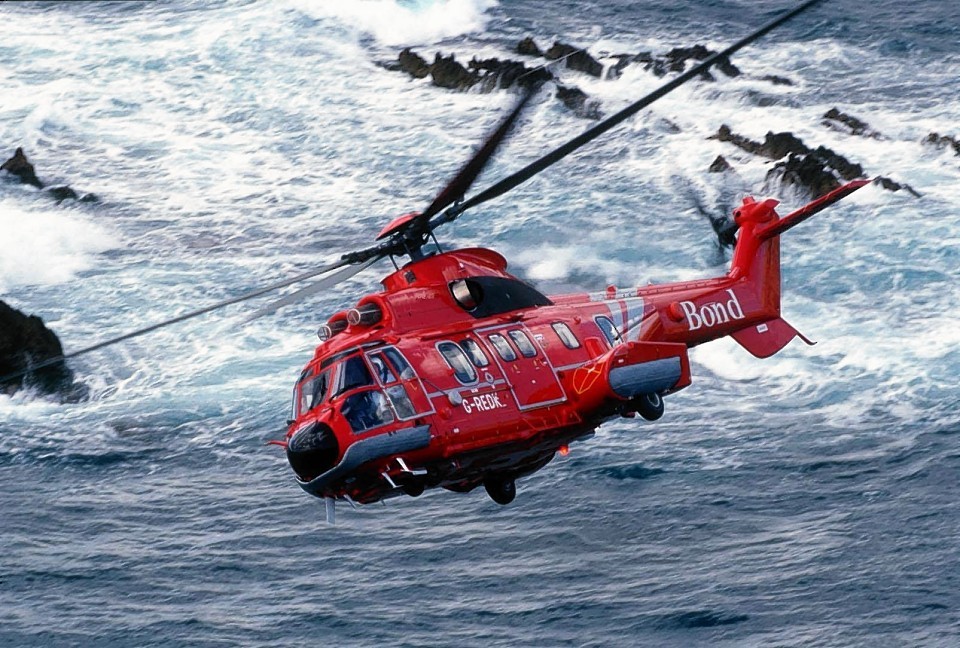A North Sea helicopter crash that killed 16 people was a result of “catastrophic gear failure”, a coroner has ruled.
The Super Puma helicopter, operated by Bond, crashed 14 miles from Peterhead on April 1, 2009.
The verdict was announced by Worcestershire coroner Geraint Williams earlier this week, at an inquiry into the death of co-pilot Richard Menzies.
Mr Williams comments echoed the result of a previous inquiry in Aberdeen, which suggested the aircraft had not been properly maintained.
“Mr Menzies died when the helicopter of which he was the co-pilot suffered catastrophic gearbox failure and crashed into the North Sea,” said the coroner.
“There were a number of failures in the performance of the maintenance programme to which the helicopter was subject which meant that opportunities to detect and rectify incipient problems were lost and which, had they been detected and acted upon, may have prevented the crash occurring.”
The accident, which killed 14 oil workers and two crew, was the second for the company in a short time period.
Just weeks earlier another helicopter plunged into the water after hitting a fog bank as it prepared to land on a rig.
All 18 people on board were rescued.
A fatal accident inquiry, lasting six weeks, was carried out before Sheriff Derek Pyle in Aberdeen earlier this year.
Sheriff Pyle agreed with the Air Accident Investigation Branch’s finding that a “catastrophic” failure of the main rotor gearbox caused the helicopter to crash.
He also said Bond’s failure to detect a significant fault in the gearbox “possibly” resulted in the crash.
Bond Offshore’s managing director Luke Farajallah said: “I would like to express again our deep sorrow at the 16 lives lost in 2009. We will never forget them.
“We owe it to the memories of those who were lost – our colleague Richard Menzies amongst them – and to the 160,000 men and women we carry every year, to continue to strive to deliver the highest standards of safety in everything we do.”
